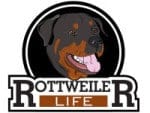Behavioral Problems of Husky Dogs
written by: parsibagan
Siberian Huskies have distinctive characteristics and traits. They are gentle, loving, casual, social, playful, and independent. These dogs love their families, which makes them a great family pet. They are smart and can be trained. If you have children at home, huskies are likely to be friendly with them, and they can also easily get friendly with strangers. They do not bark and thus cannot be good watchdogs.
They just make howling sounds and are friendly with all.Even though husky dogs can be very obedient in classes, they will not perform what they learned when they get back home. Thus, these dogs are very stubborn and can be a big challenge for their owners.
Siberian huskies are playful and always brimming with energy, particular when they are young puppies. They can get bored quite easily and need exercise on a daily basis. Huskies love to run, and even after running for really long, they are not likely to get tired
.If you like running then this dog shall prove to be a great company. They will accompany you anywhere, for as long as you desire. Just make sure it is not too hot outside since they have thick, strong coats. Huskies are basically arctic by nature.
Be sure to keep your husky on a leash always. They can keep running for miles without stopping and in the process might get lost. Huskies can easily get friendly with any stranger they come across and become a part of their family.
Husky dogs will obey their owner’s command only if they are more strong minded than they are. They themselves love being leaders. They have traits just like wolves and frequently exhibit a behavior like their ancestors. Instead of barking, they howl, and have a hunting drive.
If you do not show yourself to be a strict leader, do not expect them to obey. Even though they might listen, but will not follow. You need to be consistent and put in lots of patience while training a husky. Their wolf like traits needs a strict leadership or else, they can become stubborn and naughty.
You should not leave a Siberian husky alone without much exercise for a long time. It is important to give your husky both physical and mental exercise on a regular basis. You must not forget that this dog is a sled dog by soul and heart.Huskies love being in company of people and tend to get lonely if they find no one around. If they are left alone without much physical activity, they can end up destroying your home, taking off wallpaper, eating your sofa, and will chew anything that they will come across.
If you leave them in your yard, they can end up digging your plants and destroy everything around.It is a good idea to raise husky dogs with other pets right from their puppyhood. They do not like cats at all, and thus it will be best to keep cats away from them. These dogs do not have a big appetite and this makes them a popular choice for sled dog racing. If you like the characteristics of Siberian huskies, and are ready to spend in enough efforts and time on them, they can surely prove to be the best companions for you.


